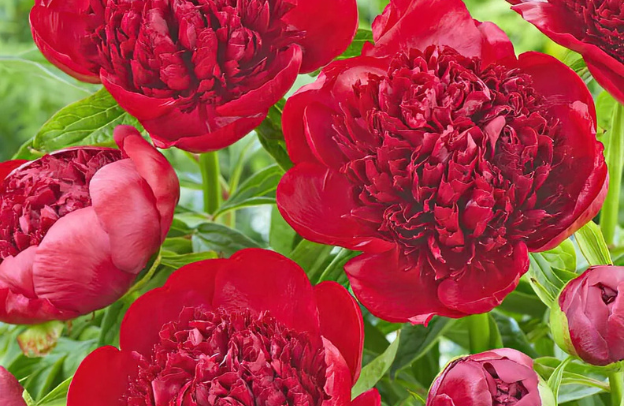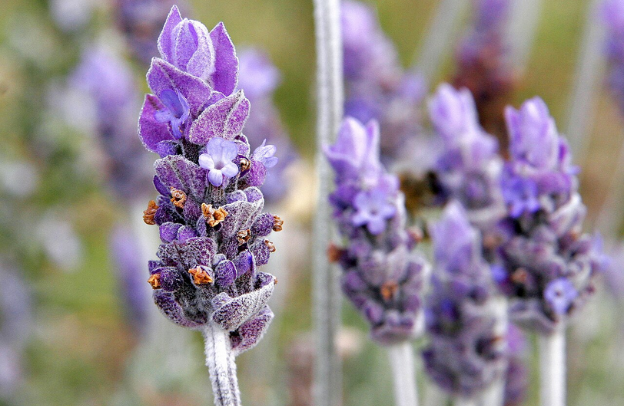Take a walk through a garden in late spring, and you might spot a tall plant with stunning, bell-shaped flowers usually purple or pink with white spots. It’s called foxglove, and while it looks innocent, it holds a powerful secret. For hundreds of years, foxglove has been used to treat heart problems but in the wrong hands, it can be deadly.
So if you are exploring natural healing or African traditional medicine, this is a plant worth knowing about not just for what it can do, but also for the care and wisdom it demands.
The Plant That Can Save or Stop a Heart
Foxglove’s story in medicine is beloved to have started back in the 1700s, when an English doctor named William Withering discovered that a tea made from this plant helped people with heart failure.
He carefully studied the effects and found that it made weak hearts beat stronger but also saw that it could be toxic if not used exactly right.
Even today, doctors still use a form of digoxin, taken from the foxglove plant, in some heart medications. But it’s not as common anymore, because the dosage has to be just right. Too little won’t work. Too much, and it can poison you.
Here’s the Scary Part
Foxglove doesn’t mess around. The difference between a healing dose and a dangerous one is tiny. Even touching the plant and then putting your hands near your mouth can cause problems. Eating any part of it, even a leaf or a flower can cause symptoms like:
- Nausea or vomiting
- Dizziness
- Blurred or yellow-tinted vision
- Irregular or slow heartbeat
- Confusion or hallucinations
In some serious cases, it can even cause the heart to stop. That’s why medical experts strongly warn against trying to use foxglove on your own.
According to studies from PubMed, many people have ended up in the emergency room after mistaking foxglove for other herbs or trying to make a homemade tea. One study reported a person accidentally made tea from foxglove instead of comfrey another plant and suffered serious heart rhythm problems.
What About African Healing Traditions?
Now, you might be wondering how this relates to traditional African healing practices.
Interestingly, foxglove isn’t native to Africa, but African traditional medicine has long understood the idea of powerful plants that must be used with caution. In many African cultures, heart health isn’t just about your physical heart. It also has to do with your emotions, your relationships, and your spiritual balance.
Healers, called sangomas, herbalists, or diviners in various communities, know that strong medicine must be used with respect. Before harvesting powerful plants, they often perform rituals or ask for spiritual permission. Doses are measured carefully, and certain plants are only used by those with years of training.
Some African plants have effects similar to foxglove. One example is Strophanthus, which has also been used for heart-related issues. But like foxglove, it’s dangerous if used incorrectly.
The point is: traditional medicine values wisdom and caution, especially when it comes to plants that can both heal and harm.
What Science Says Today
Today, doctors still use digoxin a drug made from the foxglove plant, to help with certain heart conditions. But they do it under very careful monitoring, often with regular blood tests, because too much can quickly become dangerous.
Newer heart medications are often preferred because they’re safer and more predictable. But digoxin still has a place in modern medicine, especially for patients who don’t respond to other treatments.
According to Verywell Health, digoxin helps the heart beat more efficiently and slows down fast heart rhythms.
That said, it’s not something to experiment with at home.
Why This Matters to You
If you’re someone interested in natural healing, traditional medicine, or herbal remedies, it’s easy to get excited about powerful plants like foxglove. After all, nature has been a source of healing for thousands of years.
But the story of foxglove reminds us that natural doesn’t always mean safe.
In African traditions, there’s a deep respect for the power of plants and a strong understanding that healing comes with responsibility. Whether you’re working with a sangoma, exploring your roots, or just looking for alternatives to modern drugs, foxglove is a symbol of why you need guidance, knowledge, and caution when it comes to herbal medicine.
Real Story: When Herbal Curiosity Goes Wrong
There was a real case where someone made a tea from what they thought was a safe herb but it turned out to be foxglove. Within hours, they were in the hospital with a dangerously slow heartbeat and blurry vision. Doctors had to give them a special antidote and monitor them for days before their heart stabilized.
This person didn’t mean any harm. They were simply trying to use herbs for healing. But it shows how easy it is to make a mistake when working with powerful plants.
Thinking About Trying Foxglove? Here’s What You Should Know
If you are curious about foxglove or heart-healing plants, here’s some advice to keep in mind:
- Don’t self-medicate. Foxglove is not a DIY herb.
- Talk to professionals—either a cardiologist or a trained herbalist.
- Don’t confuse similar-looking plants—mistakes can be fatal.
- Learn from tradition. In African healing, knowledge and spiritual readiness are as important as the plant itself.
- Respect the plant. Just like fire, powerful medicine must be handled with care.
So, What’s the Takeaway?
Foxglove is a plant that shows how nature can be both beautiful and dangerous. It has helped people with heart problems for centuries, and still does, under strict medical supervision.
But it’s not something to play with. It’s a plant for professionals, not a home remedy. If you’re exploring natural medicine, African healing traditions, or herbal alternatives, remember this: The strongest medicine requires the strongest wisdom.
Nature is powerful, but it’s your job to approach it with care, curiosity, and respect.







